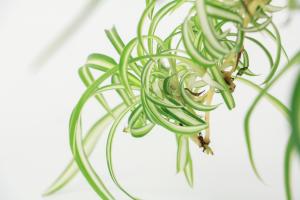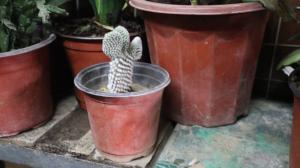Can You Plant a Banyan Tree in Florida?
Florida is known for its sunny weather and lush vegetation, making it a great place to grow a variety of plant species. However, not all trees thrive in the state's climate and soil conditions. One question that many people ask is whether they can plant a banyan tree in Florida. In this article, we will explore the possibilities of growing banyan trees in Florida and the factors that can affect their success.
What Is a Banyan Tree?
Before diving into whether you can plant a banyan tree in Florida, it's essential to understand what a banyan tree is. A banyan tree is a large evergreen tree that belongs to the fig family. It is native to tropical and subtropical regions of India, Southeast Asia, and Australia. Banyan trees are known for their extensive, aerial roots that grow down from the branches and eventually reach the ground, forming secondary trunks.
Climate and Soil Requirements for Banyan Trees
Banyan trees require a warm and humid climate to thrive. They prefer full sun exposure but can tolerate partial shade. In terms of soil, banyan trees grow best in well-draining soil that is rich in organic matter. The soil should be slightly acidic to neutral with a pH between 6.0 and 7.5.
Growing Banyan Trees in Florida
While Florida has a warm and humid climate that banyan trees typically prefer, the state's soil conditions can pose a challenge. Most of Florida's soil is sandy, which is not an ideal environment for banyan trees. However, if you're willing to put in the effort, it is possible to grow banyan trees in Florida.
The key to growing banyan trees in Florida is to amend the soil by adding organic matter, such as compost or manure. This will help to improve soil structure and fertility. It's also important to ensure that the soil is well-draining and that the banyan tree has access to plenty of water. Banyan trees require frequent watering, especially during the first few years of growth.
Maintaining Banyan Trees in Florida
Once you've successfully planted a banyan tree in Florida, the next step is maintaining it. Banyan trees require regular pruning to keep them in shape and prevent them from becoming too large. In addition, banyan trees are susceptible to pests and diseases, such as scale insects and fungal infections. Regular inspection and treatment may be necessary to keep your banyan tree healthy.
Conclusion
In conclusion, it is possible to plant a banyan tree in Florida with the right conditions and care. While Florida's sandy soil may pose a challenge, amending the soil with organic matter and ensuring adequate water and drainage can help banyan trees thrive.
However, it's essential to remember that banyan trees are large, fast-growing trees that require significant maintenance. Before planting a banyan tree, make sure you have the space and resources to care for it properly.

 how many times do yo...
how many times do yo... how many planted tre...
how many planted tre... how many pine trees ...
how many pine trees ... how many pecan trees...
how many pecan trees... how many plants comp...
how many plants comp... how many plants can ...
how many plants can ... how many plants and ...
how many plants and ... how many pepper plan...
how many pepper plan...
































